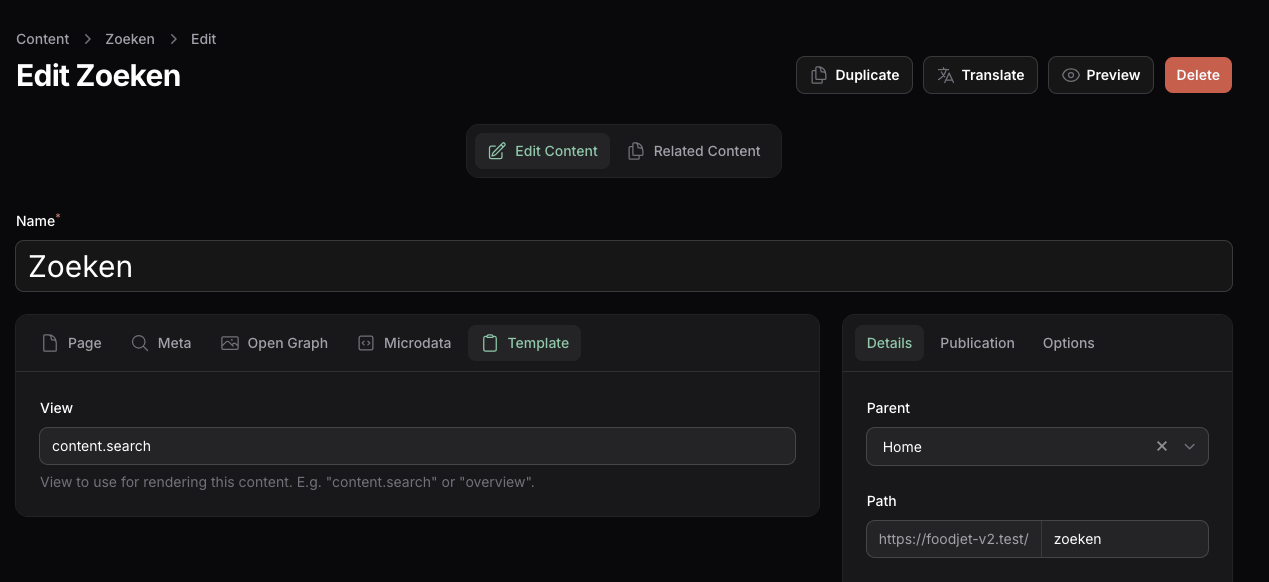Content
Content is the foundation of each page. Every content item has a type defined by configurable fields.
Blade
Blade templates are resolved in this order:
- The
viewvalue for the content (e.g.,pages.contactwill render/resources/views/pages/contact.blade.php). /resources/views/types/{content_type}.blade.php(where{content_type}is the type slug)./resources/views/types/default.blade.php(fallback for types without a custom template).- The Backstage default blade file.
Variables
$content: Always available, represents the currentBackstage\Models\Contentinstance.
Example
php
<x-page>
{{ $content->field('body') }}
@foreach ($content->field('authors') as $author)
{{ $author->field('name') }}<br />
@endforeach
<x-blocks field="blocks" />
<x-blocks field="main" />
</x-page>View Composers
If you want custom code to be executed and control the variables to the view you can use View Composers to achieve this.
When editing content, use a custom view for the content (e.g.
content.search).
Create a View Composer
php
// app/View/Composers/SearchComposer.php
namespace App\View\Composers;
use Backstage\Models\Content;
use Illuminate\Http\Request;
use Illuminate\View\View;
class SearchComposer
{
/**
* Create a new profile composer.
*/
public function __construct(
public Request $request,
) {}
/**
* Bind data to the view.
*/
public function compose(View $view): void
{
$params = $this->request->query();
$results = Content::when($params['q'] ?? null, function ($query, $search) {
return $query->where('name', 'like', '%' . $search . '%');
})
->public()
->orderBy('created_at', 'desc')
->paginate(10);
$view->with('results', $results);
}
}- Register this composer in the AppServiceProvider.php
php
// app/Providers/AppServiceProvider.php
public function boot(): void
{
View::composer('content.search', SearchComposer::class);
}- You can now use this in your blade file
blade
<!-- resources/views/content/search.blade.php -->
<div class="col-span-full py bg-full-orange text-white">
<strong>Zoeken</strong>
@dump($results)
</div>Retrieving Data from Components
To retrieve data from a component, you can use the shared view data:
php
$content = view()->shared('content');This allows you to access the current content instance from within components or other parts of your application.